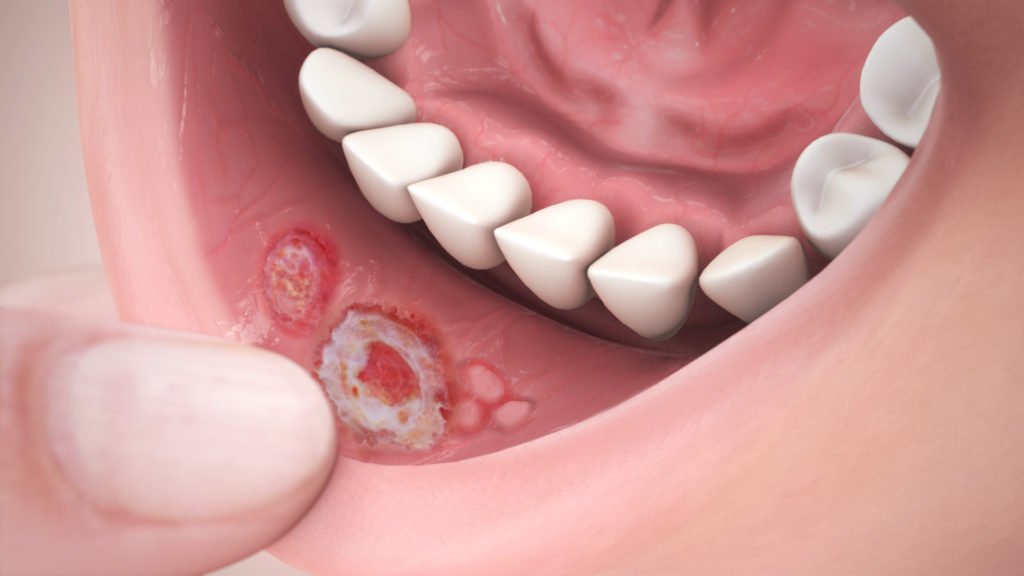What Can Cause Canker Sores Under Your Tongue
Do you ever experience that painful sore on your tongue? Did you know that it's actually a canker sore? These sores are small and shallow ulcers that can occur on the inside of the mouth, including the tongue, lips, and cheeks. They can be extremely painful and uncomfortable, making it difficult to eat or talk properly.
What Causes Canker Sores?
The causes of canker sores are not completely understood, but they are believed to be triggered by certain factors. Some of these factors include:
- Stress
- Foods that irritate the mouth, such as citrus fruits or spicy foods
- Injury to the mouth, such as biting your tongue or cheek
- Hormonal changes, particularly during menstruation
- Underlying health conditions, such as Celiac disease or inflammatory bowel disease
If you experience frequent canker sores, it's important to talk to your doctor or dentist to determine the underlying cause and find appropriate treatment options.
What Are Mouth Ulcers?
Mouth ulcers, also known as aphthous ulcers, are another type of sore that can occur in the mouth. These ulcers are often round or oval-shaped and can be yellow, gray, or white in color. They can occur on the tongue, lips, inside of the cheeks, and even in the throat. Mouth ulcers can be painful and can make it difficult to eat or drink.
The exact cause of mouth ulcers is not known, but they are believed to be triggered by a variety of factors, including:
- Stress
- Foods that irritate the mouth, such as acidic or spicy foods
- Injury to the mouth, such as toothbrush abrasions
- Underlying health conditions, such as viral infections or autoimmune diseases
If you experience frequent mouth ulcers, it's important to talk to your doctor or dentist to determine the underlying cause and find appropriate treatment options.
Treating Canker Sores and Mouth Ulcers
In most cases, canker sores and mouth ulcers will go away on their own within a week or two. However, there are several treatment options available to help alleviate pain and promote healing, including:
- Over-the-counter pain relievers, such as acetaminophen or ibuprofen
- Rinsing with warm salt water
- Applying a topical numbing agent, such as Orajel
- Using a mouthwash containing an antimicrobial agent, such as Listerine
- Applying a medicated mouthwash or gel, such as Peridex or Chlorhexidine
If these treatments do not provide relief, your doctor or dentist may recommend other options, such as prescription medications or corticosteroid injections.
Preventing Canker Sores and Mouth Ulcers
While there is no surefire way to prevent canker sores and mouth ulcers, there are several steps you can take to reduce your risk, including:
- Reducing stress through exercise, meditation, or other relaxation techniques
- Avoiding foods that irritate the mouth, such as citrus fruits or spicy foods
- Practicing good oral hygiene, such as brushing and flossing regularly
- Avoiding injury to the mouth, such as biting your tongue or cheek
- Getting enough rest and maintaining a healthy diet
By taking these steps, you can help reduce your risk of developing canker sores and mouth ulcers and promote overall oral health.

The Bottom Line
Canker sores and mouth ulcers are both common types of sores that can occur in the mouth. While they can be painful and uncomfortable, they are usually not serious and will go away on their own within a week or two. However, if you experience frequent or severe sores, it's important to talk to your doctor or dentist to determine the underlying cause and find appropriate treatment options. By taking steps to reduce your risk, such as reducing stress and practicing good oral hygiene, you can promote overall oral health and reduce your risk of developing canker sores and mouth ulcers.

The Final Word
Canker sores and mouth ulcers are both painful and frustrating, but they can be managed with proper treatment and prevention methods. If you are experiencing frequent sores, make an appointment with your dentist or doctor to determine the underlying cause and find appropriate treatment options. By taking steps to reduce your risk of developing sores, such as avoiding irritants and practicing good oral hygiene, you can promote overall oral health and enjoy a pain-free mouth.